Saturday, January 13, 2007
Low "Good" Cholesterol Level Protects Parkinson's Patients from Heart Attacks??
People with low levels of LDL cholesterol are more likely to have Parkinson’s disease than people with high LDL levels, according to University of North Carolina at Chapel Hill researchers.LDL stands for low-density lipoprotein cholesterol; low levels of LDL cholesterol are considered an indicator of good cardiovascular health. Earlier studies have found intriguing correlations between Parkinson’s disease, heart attacks, stroke and smoking.
“People with Parkinson’s disease have a lower occurrence of heart attack and stroke than people who do not have the disease,” said Dr. Xuemei Huang, medical director of the Movement Disorder Clinic at UNC Hospitals and an assistant professor of neurology in the UNC School of Medicine. “Parkinson’s patients are also more likely to carry the gene APOE-2, which is linked with lower LDL cholesterol.” And for more than a decade, researchers have known that smoking, which increases a person’s risk for cardiovascular disease, is also associated with a decreased risk of Parkinson’s disease.
Well, I have a pretty severe case of CAD, I was told in 2004 I needed a quintuple coronary artery bypass, but I opted for treatment with medication. I am doing very well on medication and am told by my doctors that my heart is in great shape. I guess I have my Parkinson's deisease to thank for that. I suppose I could say the PD is a blessing in disguise.
These findings led Huang to examine whether higher LDL cholesterol might be associated with a decreased occurrence for Parkinson’s disease, and vice versa. “If my hypothesis was correct,” she said, “lower LDL-C, something that is linked to healthy hearts, would be associated with a higher occurrence of Parkinson’s.” The results of Huang’s study, published online Dec. 18 by the journal Movement Disorders, confirmed her hypothesis. “We found that lower LDL concentrations were indeed associated with a higher occurrence of Parkinson’s disease,” Huang said. Participants with lower LDL levels (less than 114 milligrams per deciliter) had a 3.5-fold higher occurrence of Parkinson’s than the participants with higher LDL levels (more than 138 milligrams per deciliter).
Huang cautioned that people should not change their eating habits, nor their use of statins and other cholesterol-lowering drugs, because of the results. The study was based on relatively small numbers of cases and controls, and the results are too preliminary, she said. Further large prospective studies are needed, Huang added.
“Parkinson’s is a disease full of paradoxes,” Huang said. “We’ve known for years that smoking reduces the risk of developing Parkinson’s. More than 40 studies have documented that fact. But we don’t advise people to smoke because of the other more serious health risks,” she said.
Huang and her colleagues recruited 124 Parkinson’s patients who were treated at the UNC Movement Disorder Clinic between July 2002 and November 2004 to take part in the study. Another 112 people, all spouses of patients treated in the clinic, were recruited as the control group. Fasting cholesterol profiles were obtained from each participant. The researchers also recorded information on each participant’s gender, age, smoking habits and use of cholesterol-lowering drugs.
Huang notes that the study also found participants with Parkinson’s were much less likely to take cholesterol-lowering drugs than participants in the control group. This, combined with the findings about LDL cholesterol, suggests two questions for additional study, Huang said.
“One is whether lower cholesterol predates the onset of Parkinson’s. Number two, what is the role of statins in that? In other words, does taking cholesterol-lowering drugs somehow protect against Parkinson’s? We need to address these questions,” she said.
“People with Parkinson’s disease have a lower occurrence of heart attack and stroke than people who do not have the disease,” said Dr. Xuemei Huang, medical director of the Movement Disorder Clinic at UNC Hospitals and an assistant professor of neurology in the UNC School of Medicine. “Parkinson’s patients are also more likely to carry the gene APOE-2, which is linked with lower LDL cholesterol.” And for more than a decade, researchers have known that smoking, which increases a person’s risk for cardiovascular disease, is also associated with a decreased risk of Parkinson’s disease.
Well, I have a pretty severe case of CAD, I was told in 2004 I needed a quintuple coronary artery bypass, but I opted for treatment with medication. I am doing very well on medication and am told by my doctors that my heart is in great shape. I guess I have my Parkinson's deisease to thank for that. I suppose I could say the PD is a blessing in disguise.
These findings led Huang to examine whether higher LDL cholesterol might be associated with a decreased occurrence for Parkinson’s disease, and vice versa. “If my hypothesis was correct,” she said, “lower LDL-C, something that is linked to healthy hearts, would be associated with a higher occurrence of Parkinson’s.” The results of Huang’s study, published online Dec. 18 by the journal Movement Disorders, confirmed her hypothesis. “We found that lower LDL concentrations were indeed associated with a higher occurrence of Parkinson’s disease,” Huang said. Participants with lower LDL levels (less than 114 milligrams per deciliter) had a 3.5-fold higher occurrence of Parkinson’s than the participants with higher LDL levels (more than 138 milligrams per deciliter).
Huang cautioned that people should not change their eating habits, nor their use of statins and other cholesterol-lowering drugs, because of the results. The study was based on relatively small numbers of cases and controls, and the results are too preliminary, she said. Further large prospective studies are needed, Huang added.
“Parkinson’s is a disease full of paradoxes,” Huang said. “We’ve known for years that smoking reduces the risk of developing Parkinson’s. More than 40 studies have documented that fact. But we don’t advise people to smoke because of the other more serious health risks,” she said.
Huang and her colleagues recruited 124 Parkinson’s patients who were treated at the UNC Movement Disorder Clinic between July 2002 and November 2004 to take part in the study. Another 112 people, all spouses of patients treated in the clinic, were recruited as the control group. Fasting cholesterol profiles were obtained from each participant. The researchers also recorded information on each participant’s gender, age, smoking habits and use of cholesterol-lowering drugs.
Huang notes that the study also found participants with Parkinson’s were much less likely to take cholesterol-lowering drugs than participants in the control group. This, combined with the findings about LDL cholesterol, suggests two questions for additional study, Huang said.
“One is whether lower cholesterol predates the onset of Parkinson’s. Number two, what is the role of statins in that? In other words, does taking cholesterol-lowering drugs somehow protect against Parkinson’s? We need to address these questions,” she said.
Subscribe to:
Post Comments (Atom)



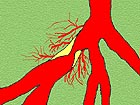
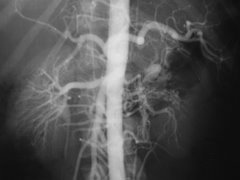
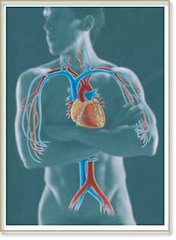
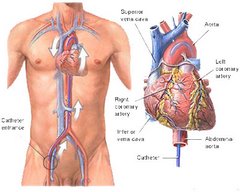
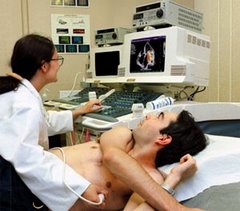
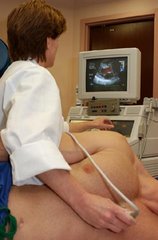
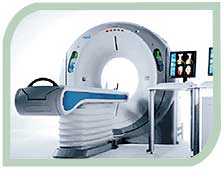
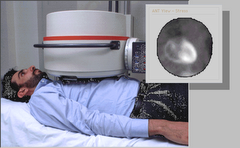
No comments:
Post a Comment